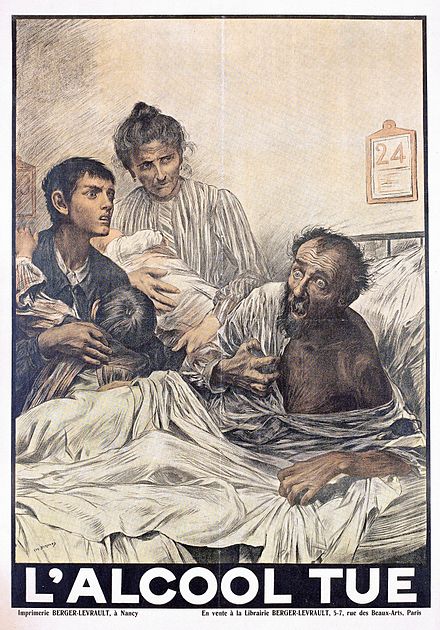Delirium
Delirium, historically known as acute confusional state, is an abrupt onset of confusion characterised by disturbances in attention, awareness, and cognition. It typically develops over hours to days and can fluctuate in intensity. Delirium affects 1–2% of the population but is more prevalent in hospitalised adults, particularly those over 65.
Definition
Delirium, historically known as acute confusional state, is an abrupt onset of confusion characterised by disturbances in attention, awareness, and cognition. It typically develops over hours to days and can fluctuate in intensity. Delirium affects 1–2% of the population but is more prevalent in hospitalised adults, particularly those over 65.
Signs and Symptoms
Delirium presents in three types: hyperactive, hypoactive, and mixed. Core features include:
- Inattention: Difficulty focusing or maintaining attention.
- Memory Impairment: Problems encoding new information.
- Disorientation: Confusion about time, place, or self.
- Disorganised Thinking: Speech may be incoherent or irrelevant.
- Language Disturbances: Difficulties in communication.
- Sleep/Wake Disturbances: Fragmented sleep or reversal of sleep cycle.
- Psychotic Features: Hallucinations, delusions, and mood lability.
- Motor Activity Changes: May manifest as restlessness or lethargy.
Causes and Risk Factors
Delirium can stem from various medical conditions, medications, and environmental factors. Predisposing factors include advanced age, dementia, sensory impairments, and substance use disorders. Precipitating factors often involve acute medical conditions like infections, surgery, or prolonged sleep deprivation.

Pathophysiology
The exact mechanisms leading to delirium are not well understood. Animal models suggest that cholinergic deficiency and systemic inflammation play roles. Studies in cerebrospinal fluid indicate neurotransmitter imbalance and increased cortisol levels. Neuroimaging and neuropathology provide insights but remain inconclusive.
Diagnosis
Delirium diagnosis often relies on clinical criteria such as those in the DSM-5-TR. Early detection using screening tools like the Confusion Assessment Method (CAM) or the 4AT is very important. Accurate diagnosis requires knowledge of a person's baseline cognitive function.
Differential Diagnosis
Delirium can be confused with other conditions like dementia, depression, and psychosis. Dementia differs from delirium in its chronic nature, while depression and primary psychosis usually don't involve fluctuating consciousness levels.
Prevention
Preventing delirium involves identifying at-risk individuals and using both pharmacological and non-pharmacological interventions. Hospital Elder Life Programme (HELP) and similar initiatives have proven effective. Non-pharmacological approaches include addressing risk factors like dehydration, sleep disturbances, and sensory impairments. Pharmacological options, such as melatonin, show mixed results.
Treatment
Treatment focuses on addressing the underlying cause and managing symptoms. Key interventions include:
- Optimising oxygenation, hydration, and nutrition.
- Ensuring a therapeutic environment with proper lighting and minimal noise.
- Providing cognitive engagement and mobility assistance.
- Using medications like low-dose haloperidol for severe symptoms, though with caution.
Medications
Pharmacological treatment is reserved for severe neuropsychiatric disturbances. Antipsychotics like haloperidol and risperidone may be used, but benzodiazepines are generally avoided due to their potential to worsen delirium.
Prognosis
Delirium is associated with long-term poor outcomes, including increased mortality, longer hospital stays, and higher rates of institutionalisation. It also accelerates cognitive decline and increases the risk of dementia.
Epidemiology
Delirium is particularly prevalent among ICU patients, with rates between 50–75%. It also affects 10% of older adults in emergency departments and 10–45% in nursing homes. Early detection and management are very important in these settings.
Society and Culture
Delirium has been recognised since ancient times, with historical descriptions dating back to Roman times. It remains a significant medical issue with considerable healthcare costs, estimated at £13k per admission in the UK.
Self-assessment MCQs (single best answer)
What is the historical term for delirium?
Which type of delirium is characterised by increased motor activity and agitation?
Which screening tool is commonly used for early detection of delirium?
What neurotransmitter deficiency is suggested to play a role in the pathophysiology of delirium?
Which of the following is NOT a core feature of delirium?
Which medication is generally avoided in the treatment of delirium due to its potential to worsen the condition?
Delirium is more prevalent in which group of hospitalised adults?
Which of the following is a non-pharmacological intervention for preventing delirium?
Which of the following is a common precipitating factor for delirium?
Delirium is most prevalent in which clinical setting?
Dentaljuce
Dentaljuce provides Enhanced Continuing Professional Development (CPD) with GDC-approved Certificates for dental professionals worldwide.
Founded in 2009 by the award-winning Masters team from the School of Dentistry at the University of Birmingham, Dentaljuce has established itself as the leading platform for online CPD.
With over 100 high-quality online courses available for a single annual membership fee, Dentaljuce offers comprehensive e-learning designed for busy dental professionals.
The courses cover a complete range of topics, from clinical skills to patient communication, and are suitable for dentists, nurses, hygienists, therapists, students, and practice managers.
Dentaljuce features Dr. Aiden, a dentally trained AI-powered personal tutor available 24/7 to assist with queries and provide guidance through complex topics, enhancing the learning experience.
Check out our range of courses, or sign up now!


